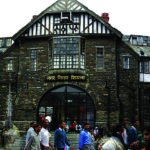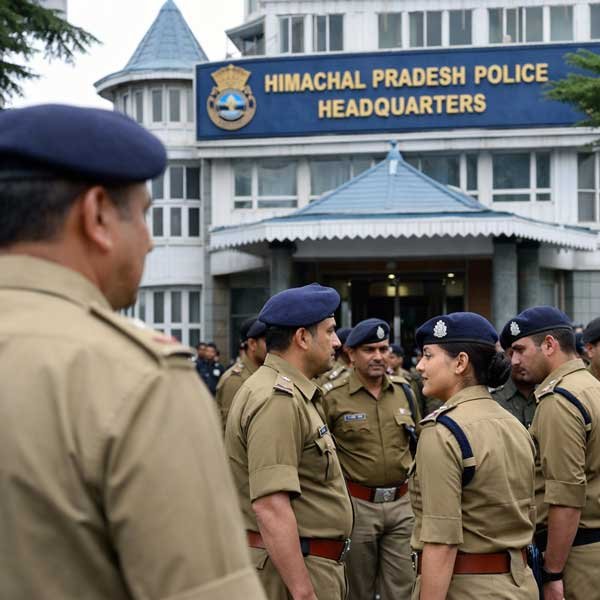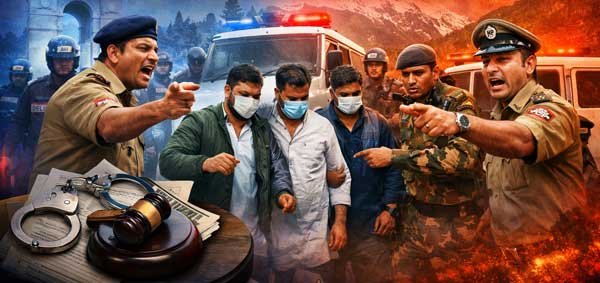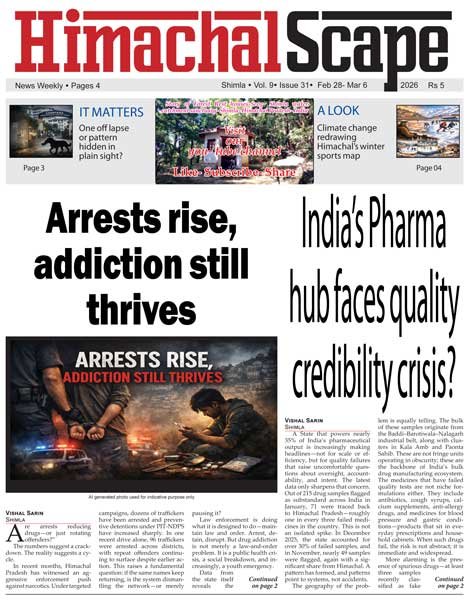
Photo used for indicative purpose only. Source: Internet
Shimla, Sept 3,
The Himachal Pradesh Assembly witnessed heated exchanges on Tuesday over the tender process for a water supply scheme from the Beas river to Barsar and issues related to liquor vending, sparking a lively debate between government and opposition members.
Deputy Chief Minister Mukesh Agnihotri, responding to a call attention motion raised by Jaswan Pragpur MLA Bikram Singh, announced that the Barsar water supply scheme would undergo re-tendering. He explained that the project, which is funded by the New Development Bank (NDB), initially planned to source water from the Satluj River. However, a decision was made to change the source to the Beas River, thereby reducing the distance by 40 kilometers. This change, he argued, resulted in a substantial saving of Rs 70 crore.
Agnihotri informed the Assembly that a four-member panel has been established to investigate the alleged irregularities in the tender process. He emphasized the urgency of completing the project by December 2024, warning that failure to do so could result in the loss of Rs 131 crore in funding from NDB. Agnihotri also criticized the previous government, questioning why they did not object to the initial tender process and accusing them of mishandling the project. He pointed out that the previous government, while in power, gave Rs 400 crore worth of land to an industry at a nominal price of Re 1, and suggested that such decisions should be probed by Vigilance authorities.
Bikram Singh, however, was not satisfied with the Deputy CM’s response. He questioned why no action was being taken against the high-ranking technical officer responsible for the original decision to source water from the Beas, which he described as a significant blunder. In response, Agnihotri defended the change, stating that it was justified by a Union Power Ministry directive that removed the need for future projects to seek permission for lifting water from the Satluj. He assured the Assembly that no work had been done on the previous source, and the re-tendering was necessary for transparency and efficiency.
Chief Minister Sukhvinder Singh Sukhu also took the floor to address concerns raised by BJP MLA Randhir Sharma regarding liquor vending in the state. Sukhu criticized certain media houses for publishing reports on the issue without proper verification and urged the Public Relations Department to ensure accuracy in reporting.
Responding directly to Sharma’s allegations that liquor vends were auctioned below reserve prices, the Chief Minister firmly dismissed these claims. He clarified that the reserve prices were based on market rates and that the BJP, during its tenure, had chosen to renew licenses rather than auction them, which led to revenue losses. Sukhu cited Kullu district as an example, where excise revenue reached Rs 127 crore under the current government’s transparent policies.
The Chief Minister further explained that despite natural disasters, the Congress government managed to maintain a steady income from liquor vending, generating Rs 485 crore in one year alone. He criticized the BJP government for its handling of excise policies, which he claimed were poorly managed and resulted in revenue stagnation in several districts. Sukhu also addressed the judicial probe demanded by the opposition, dismissing it as unnecessary and urging the Speaker to remove the demand from the records. He argued that the Deputy Commissioners were already empowered under the excise rules to make decisions regarding the clubbing or declubbing of vending units based on liquor sales.
BJP MLA Randhir Sharma, however, did not back down, continuing to press the government on the decline in excise revenue in five of the state’s twelve districts. He accused the government of trying to cover up its mismanagement and demanded a judicial probe into the matter. Sharma argued that the practice of renewing liquor vends, which began under the previous Virbhadra Singh government, had been mishandled by the current administration, resulting in significant revenue losses. He also criticized the government’s decision to change the number of liquor units in certain areas, which he claimed further exacerbated the decline in revenue.
The debate extended into the post-lunch session, with further exchanges between Sharma and the Chief Minister regarding the role of the media in reporting on Assembly discussions. Sharma insisted that the media should not be dictated by the government on how to report issues and criticized the use of the word “scam” in reference to the liquor vending issue.
Sukhu countered that the media should ensure their reports are factually accurate and not distort the discussions held in the Assembly.
Speaker intervened, reminding the media of their responsibility to report Assembly proceedings accurately while also ensuring that statements made within the house are not misrepresented and distorted

The HimachalScape Bureau comprises seasoned journalists from Himachal Pradesh with over 25 years of experience in leading media conglomerates such as The Times of India and United News of India. Known for their in-depth regional insights, the team brings credible, research-driven, and balanced reportage on Himachal’s socio-political and developmental landscape.










